
A Sense of Doubt blog post #3077 - Global Food Supply in Jeopardy - Ukraine, Famine, and More
You may not know this about me, even if you read my blog, but I move posts around. Though I plan ahead, mostly, with blog posts, I also delay posts that are not ready yet.
But I want to weave commentary around links on the HODGE PODGE, and it's not ready yet.
So, then, I just look for something to catch my attention, and these posts did.
And Russia's attack and heinous actions.
Thanks for tuning in.
 |
| A worker cleans grain after trucks unloaded in a grain elevator in Melitopol, Ukraine.AP |
https://www.motherjones.com/politics/2023/07/the-end-of-russia-and-ukraines-grain-deal-is-bad-news-for-the-global-food-supply/
The End of Russia and Ukraine’s Grain Deal Is Bad News For The Global Food Supply
After pulling out of the deal Monday, Russia launched missiles at Ukrainian grain storage facilities.
In July 2022, the United Nations and Turkish President Recep Tayyip Erdogan helped broker the Black Sea Grain Initiative: A deal between Russia and Ukraine that the UN Secretary-General António Guterres called “a beacon of hope.” It allowed food and fertilizer exports from three Ukrainian ports—on the Black Sea, Odesa, Chornomorsk and Yuzhny/Pivdennyi—to be shipped to the rest of the world. Since the agreement was signed last year, 32.8 million tons of Ukrainian grain have been exported; more than half has gone to developing countries, including drought-ridden East African nations like Ethiopia, Kenya, and Somalia.
This week, that deal ended. And it soon got worse. After pulling out of the deal, Russia attacked storage facilities in the coastal city of Odesa, reportedly destroying 60,000 tons of grain, according to Ukrainian Agriculture Minister Mykola Solskyi. Both nations say that they will now treat each other’s ships traveling across the Black Sea as potential military targets.
The end of the deal, and the bombings, could be a major blow to the global food supply. As my former colleague Tom Philpott wrote in March 2022, the Russia and Ukraine war is being fought in the world’s breadbasket:
Today, Russia is a global wheat powerhouse, the world’s number-three producer of the staple crop, and its number-one exporter. Just as in 1768, much of its most productive farmland lies east of the Ukraine border, making it largely reliant on the same “black paths” (now covered in paved roads and railroad tracks) to reach markets. Ukraine, too, is a major wheat exporter, and has recently emerged as a corn powerhouse, too, supplying China and its booming meat industry with nearly a third of its feed corn imports.
What does it mean when a war of conquest descends upon one of the globe’s great breadbaskets in the 21st century? With trade routes embattled and markets roiled by Russia’s invasion, wheat prices have already shot up to their highest level in 60 years. This far exceeds the spike of the early 2010s, which led to bread riots in the Middle East that helped bring about the Arab Spring and the still-simmering civil war in Syria. “It’s a core food,” Nelson says, “and when you double its price, it just changes everything.”
Looking forward, there is another risk of a major uptick in prices. It is also a chance for Russia to push its influence. Already, the nation has offered itself as an option to African nations unable to rely on Ukraine.
Russian spokesperson Dmitry Peskov said that the decision to pull out of the deal was made because the United Nations and Western countries supporting Ukraine had not held up their side of the bargain. Peskov claimed there were still obstacles to Russia exporting its own agricultural goods. “It has stopped. The grain deal has stopped, as soon as the Russian part is completed, the Russian side will immediately return to the implementation of this deal,” he said.
On Monday, Secretary-General Guterres condemned Russia’s decision and said he was “deeply disappointed,” and that the agreements had “helped to reduce food prices by over 23 percent since March last year.” Guterres also noted a letter he sent to Putin that emphasized the progress made on Russian exports, and urged him to “keep the Black Sea Grain Initiative alive.” Days before they pulled out, Vladimir Putin said that while he believed Guterres was negotiating in good faith, he did not believe that Western countries were “going to fulfill their promises.”
“Looking ahead, our goal must continue to be advancing global food security and global food price stability,” Guterres continued. “This will remain the focus of my efforts, taking into account the rise in human suffering that will inevitably result from today’s decision.”
Worried About Famine? Let's Look at Some Crop Reports.
You're not wrong to pay attention.
You might’ve seen that India recently banned exports for non-basmati rice this week in an effort to control inflation. It’s a big deal because they produce 40 percent of the world’s rice. This story deserves some context, because it’s got people rattled. I’ve been following food production for a year. Given climate change and supply chain frailty, it’s yet another thing that’s on us now. People want to know if they should be worried, and they’re not getting honest answers.
Here’s what’s going on:
India expects a drop in production due to drought, followed by floods. According to the news, they’re expecting a “marginal drop,” but it could be more than marginal. Some analysts say what India’s doing is mostly a political move by their controversial prime minister, heading into an election year.
Here’s the thing:
We’ve seen more stories like this one over the last few years. Last summer, more than a dozen countries banned exports of wheat, rice, oats, fruits, and vegetables. It’s part of a new global trend—food protectionism. These countries are the first to feel the hurt of climate change. They’re the first to be dealing with extreme, unpredictable weather on this scale. They saw what happened to Syria when droughts ruined their agriculture. Civil war followed. They’re trying hard to prevent social unrest and insulate themselves from global price shocks.
These stories trigger fear in middle-class Americans, who’ve spent most of their lives walking through palatial grocery stores stocked to the gills. Of course, some of us always knew how wasteful that was. Presenting this image of abundance meant astonishing amounts of waste.
It wouldn’t last.
The poorest Americans don’t feel this kind of panic. It’s more like a deepening sense of frustration and despair. Food scarcity is nothing new to them. Where I teach, our students and even some of our staff are used to skipping meals and getting by on whatever they can afford. They’ve done it for years. Affluent Americans don’t understand how many people live in food deserts, places where there’s almost never access to healthy food. On the other hand, hunger has been getting worse over the last two years. It’s driven by two things:
Climate change.
Corporate greed.
Right now, affluent liberals are patting themselves on the back for “beating inflation,” except they haven’t beaten it at all. Energy costs have gone down, but the price of food and shelter continues to go up. As we saw with Covid deaths, the party in power is manipulating data to claim a hollow victory.
Let’s look at some charts from The U.S. Bureau of Labor Statistics.
Here’s the price of bread per pound:
Here’s the price of rice per pound:
Here’s the price of pasta per pound:
Here’s the price of beef per pound:
Does that look like victory over inflation?
It doesn’t to me.
A lot of major food producers have jerked up prices out of pure greed, but climate change is playing a role here.
That said, a lot of us get freaked out when videos of hail storms and floods go viral. Yes, they destroy crops. Yes, drought is wreaking havoc on farmers around the world. However: If you want to see how crops are really doing, you can go to the U.S. Department of Agriculture and look at their crop progress and condition reports. You can look at the national numbers, or by state.
It might put your mind at ease.
For example, here’s our national winter wheat outlook:
Most crops are doing okay, relatively speaking, and definitely compared to last year. Corn and soybeans got off to a horrible start, but they’ve rebounded over the last month thanks to summer rains.
The charts I’m looking at show a downward trend over the years, though. That’s contributing to rising food costs.
Things aren’t heading in a good direction.
Conclusion:
Crops are doing better than they did last summer, but that wasn’t a summer we want to repeat. We’re not going to run out of food this year, unless a lot more extreme weather happens between now and October. And of course, that’s the entire point about climate change. It’s making the weather unpredictable, so we increasingly don’t know what the hell could happen next week.
There’s one thing we can be sure about: Droughts and floods are definitely driving up food costs. Food monopolies are taking advantage of disasters to raise prices even further. It’s on track to continue.
Our leaders are acting like cowards.
They should be encouraging everyone to start eating more drought-tolerant foods and consuming less meat. They should be focusing on agriculture reforms. They should be passing actual laws to regulate food prices. This land wasn’t meant to raise cows and wheat. It was meant to grow beans and sorghum. Politicians aren’t doing what’s necessary because, well, they find it easier to focus on spin. They don’t want affluent shoppers to freak out over the occasional empty shelf, so they’re doing everything they can to address the appearance rather than the root problems.
We’ve been seeing a lot of that lately.
It’s making things worse.
Here’s the main problem: Like everything else, the elite have turned food into a commodity, a political tool, and a weapon.
It didn’t have to be that way.
Economists and bankers need to start acknowledging that today’s inflation isn’t about “too much money” in the system. It’s not about wages being “too high,” and it doesn’t go away just because it slows down.
Anyway, at least we’re not going to starve this year, as far as I can tell. These days we’ll take whatever good news we can get.
Won’t we?
+++++++++++++++++++++++++++++++++++++++++++++++++++++++++++++++++++++++
+++++++++++++++++++++++++++++++++++++++++++++++++++++++++++++++++++++++
+++++++++++++++++++++++++++++++++++++++++++++++++++++++++++++++++++++++
- Bloggery committed by chris tower - 2307.22 - 10:10
- Days ago = 2941 days ago
- New note - On 1807.06, I ceased daily transmission of my Hey Mom feature after three years of daily conversations. I plan to continue Hey Mom posts at least twice per week but will continue to post the days since ("Days Ago") count on my blog each day. The blog entry numbering in the title has changed to reflect total Sense of Doubt posts since I began the blog on 0705.04, which include Hey Mom posts, Daily Bowie posts, and Sense of Doubt posts. Hey Mom posts will still be numbered sequentially. New Hey Mom posts will use the same format as all the other Hey Mom posts; all other posts will feature this format seen here.

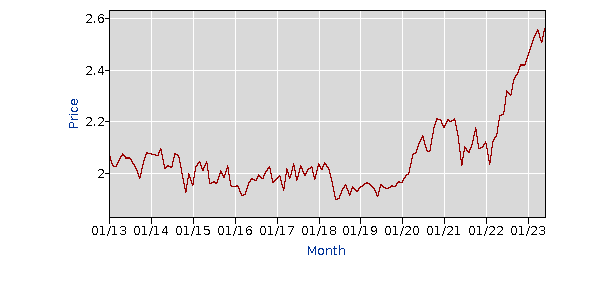
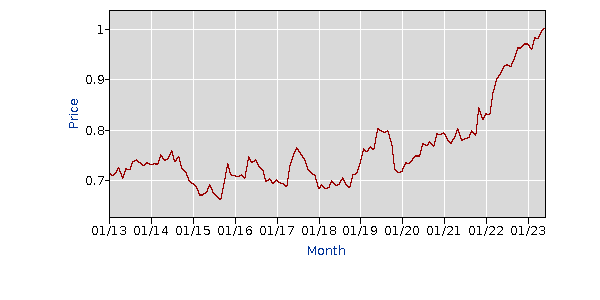
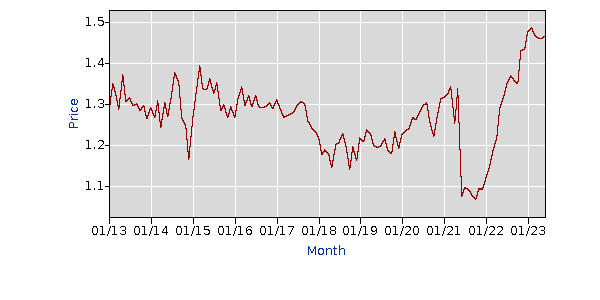
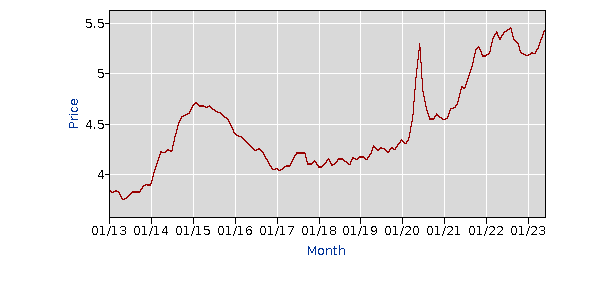
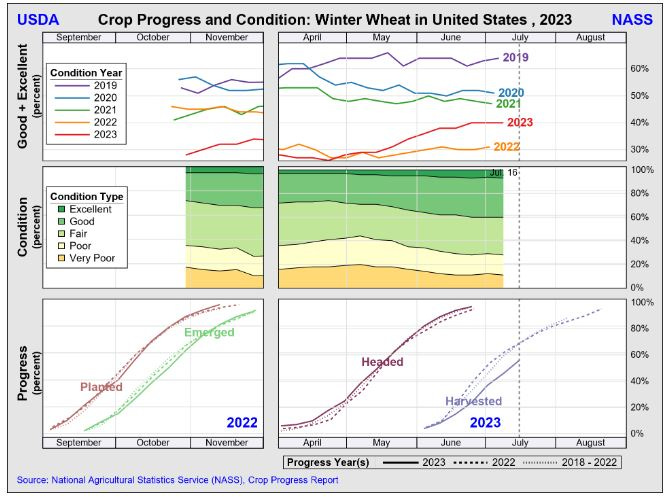
No comments:
Post a Comment